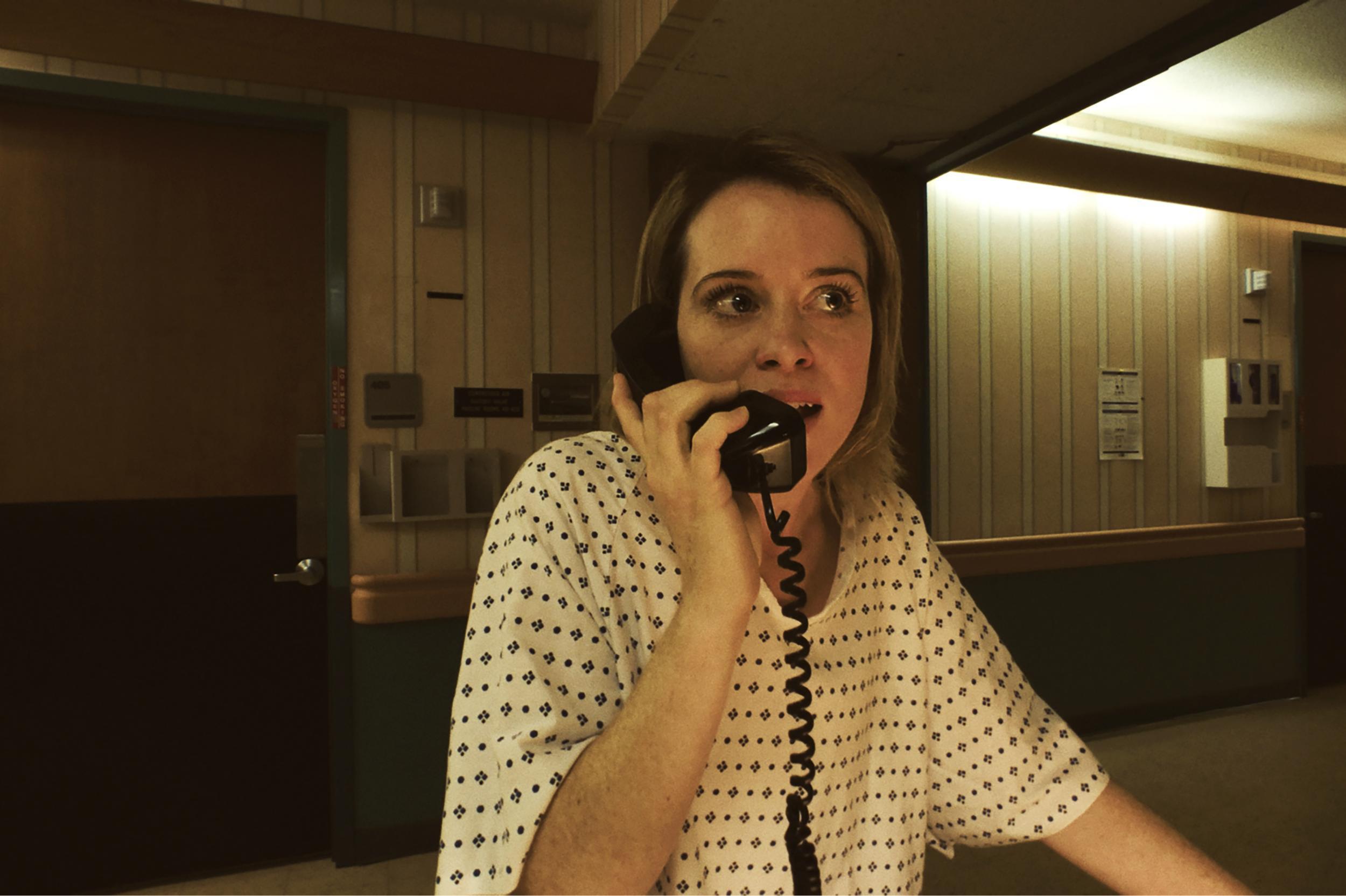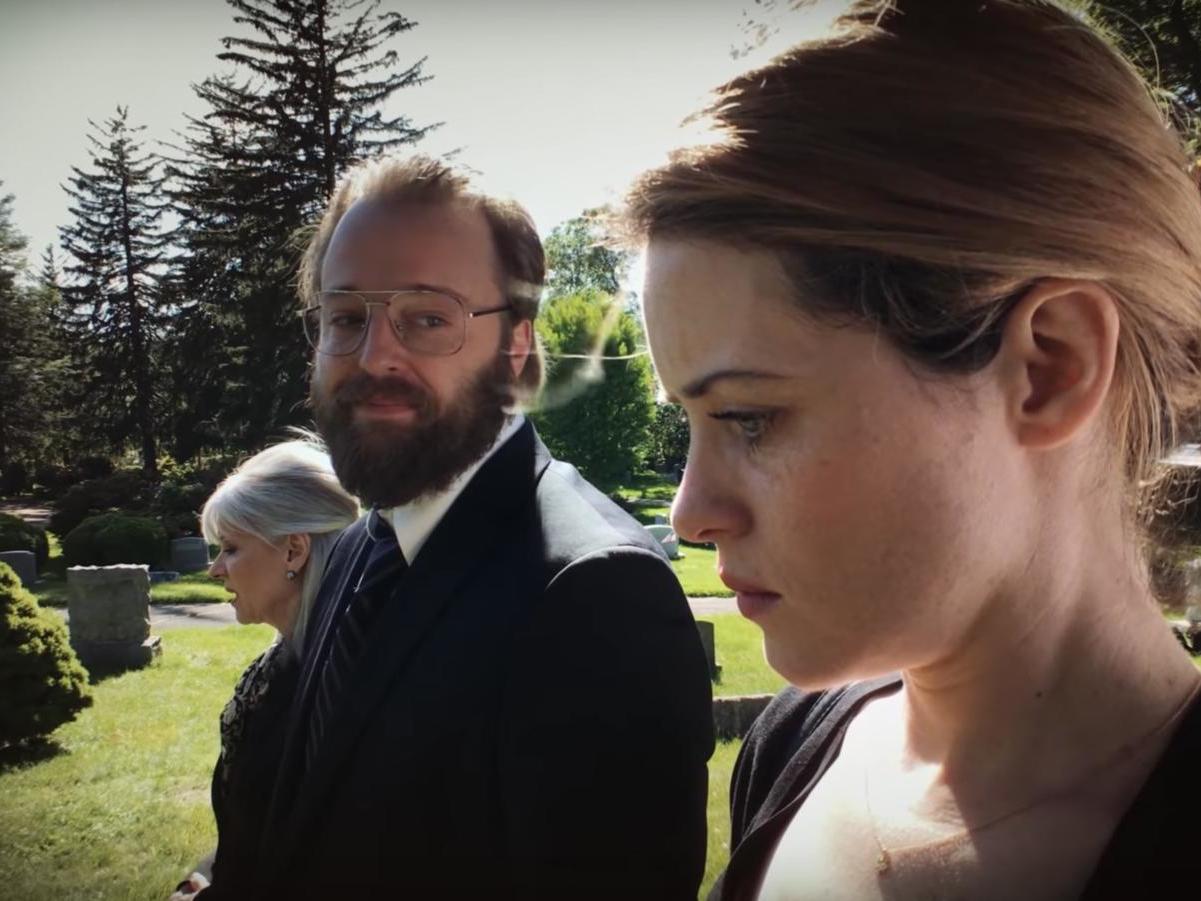Unsane sheds light on the dangers of gaslighting
Steven Soderbergh's gritty iPhone-shot thriller takes its terrors from a reality that’s discomfortingly familiar to many

Your support helps us to tell the story
From reproductive rights to climate change to Big Tech, The Independent is on the ground when the story is developing. Whether it's investigating the financials of Elon Musk's pro-Trump PAC or producing our latest documentary, 'The A Word', which shines a light on the American women fighting for reproductive rights, we know how important it is to parse out the facts from the messaging.
At such a critical moment in US history, we need reporters on the ground. Your donation allows us to keep sending journalists to speak to both sides of the story.
The Independent is trusted by Americans across the entire political spectrum. And unlike many other quality news outlets, we choose not to lock Americans out of our reporting and analysis with paywalls. We believe quality journalism should be available to everyone, paid for by those who can afford it.
Your support makes all the difference.What happens when you can’t trust your own reality? We’re entering horror territory here. And it’s fear that creeps through Steven Soderbergh’s Unsane.
Sawyer Valentini (Claire Foy) moves from Boston to Pennsylvania in order to escape her stalker, only to find herself unwittingly committed into a mental institution. She believes she’s perfectly healthy. Everyone around her seems determined to convince her otherwise. And what if they’re right?
Unsane may be a kind of fanciful genre exercise for director Soderbergh – a gritty ride shot on an iPhone 7 and bursting with twists and turns – but its terrors are exercised from a reality that’s discomfortingly familiar to many.
We’re dealing with "gaslighting" here: a form of manipulation in which victims are targeted in a way that makes them doubt themselves, their own perceptions, sometimes their own sanity.
The term originates from the 1938 play Gas Light, by Patrick Hamilton, in which a husband slowly convince his wife she’s gone insane in order to cover his own nefarious deeds. She is told by her husband the gas lights dimming in the house at night are a figment of her imagination, when in fact he is using gas lights in the apartment upstairs to search for the jewels of its occupant who he has murdered.
Cinematic adaptations arrived in 1940 and 1944, with the latter directed by George Cukor and starring Ingrid Bergman.
Gaslighting is a truly destructive, albeit subtle, form of psychological abuse and a danger because of how it can significantly warp a victim’s perception of the world – from hypervigilance to anxiety to self-doubt. It’s also startling prevalent: widely discussed in terms of child abuse and bullying, but also within romantic relationships, workplaces, and even the political stage.
Why is it so common? Psychologist Honey Langcaster-James explains: “Like all forms of abuse it’s about power and control. As someone systematically makes you doubt yourself, they gain more power and control over you.”
Even medical practitioners have had to reckon with its existence. In Unsane, Sawyer’s claim that her stalker has broken into the hospital is dismissed by her doctors. In 1972, Martha Mitchell, wife of John Mitchell, Attorney General during the Nixon administration, claimed that White House officials were engaged in illegal activities, but it was written off as a sign of mental illness.
The exposure of the Watergate scandal led to her vindication. And she was heralded as “the Cassandra of Watergate” in reference to another famous victim of gaslighting – the mythical princess who could hear the future, but was cursed with the fact no one would ever believe her prophecies.
The story of Cassandra has grown into a common metaphor; an expression of how gaslighting, despite its prevalence, will forever be a weapon specifically used in the silencing and abuse of women.
In her essay, “Cassandra Among the Creeps”, for example, Rebecca Solnit drew comparison between the mythological figure and the difficulties faced by modern women who report sexual harassment and abuse – so often characterised as hysterical or delusional.
Within instances of stalking and abusive relationships, Langcaster-James explains that gaslighting can be a means to force the victim into a sense of dependency, a way to manipulate them into only trusting the word of the abuser, not their own internal perception. What can make abusers so convincing is the fact that they will often disguise their manipulation as concern; that they’re only trying to help their victim see the truth of the situation.
In cases of stalking, it can be an attempt to get closer to the victim and gain entry into their life, Langcaster-James adds, while also making them feel hysterical for even perceiving the stalker as a possible threat in the first place. That’s certainly true of Sawyer’s stalker, who attempts to convince her she’s delusional for not recognising they’re meant to be together. That if she could just get past her own hesitations, the both of them would live happy lives.

It’s what makes gaslighting so difficult to combat. Direct confrontation will often result in absolute denial. "They may express indignation or hurt that you could think such a thing of them," Langcaster-James says. In fact, it’s just another level of gaslighting, since it’s just “another way they try to manipulate you into feeling guilty for even having any suspicions”.
Langcaster-James details that gaslighting initially manifests itself as a sense of confusion in the victim; the natural reaction to being confronted with a perception of things different to what you believe. Then comes the self-doubt, the feeling that you might be “going crazy”.
She adds: “It’s extremely rare for someone to be genuinely delusional and for there to be no basis in reality for your perceptions, so as a default you should have faith that you can trust your own perceptions. Typically speaking, if you’re questioning yourself, then it’s most likely you have a good grasp on reality, otherwise you probably wouldn’t even be wondering about it.”
If you’re concerned you may be a victim of gaslighting, she stresses the importance of seeking out someone who can genuinely tell you the truth, while also taking notes of everything that happens. “If you suspect that all is not well, seek help from a professional, someone who understands psychological abuse. Telling others what’s going on and seeking support is the best way to protect yourself,” she concludes. The best way to escape gaslighting’s insidious effects is to understand how it operates.
'Unsane' is in UK cinemas now